The University Record, October 4, 1999
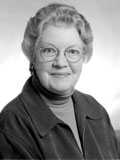
The University of Michigan celebrates the merging of superb scholarship and modern technology with the selection for the first time of an electronic work published by the U-M Press, the CD-ROM The Evolution of the English Bible: From Papyri to King James , for a University of Michigan Press Book Award. Authors Kathryn L. Beam and Traianos Gagos combined their scholarly expertise to create a lively, interactive guided tour of the evolution of biblical text and images over the course of 16 centuries. Ms. Beam is curator of the Humanities Collections of the University’s Special Collections Library, and Professor Gagos is archivist of papyrology. Based on materials in the Special Collections Library, the CD-ROM features several hundred images originally written on papyrus, parchment and paper that trace the roots of the King James Bible, including its predecessors and other related religious works dating from 119 to 1611.
To students of the Bible and others, Ms. Beam and Professor Gagos offer insightful commentary into the historical details surrounding the texts and the evolution of writing styles. They also prepared a 160-page supplemental booklet containing Greek transcriptions and English translations of several significant papyrological texts, including the Letters of St. Paul, The Book of Enoch, and Melito’s Homily on a Passion. Viewers of The Evolution of the English Bible: From Papyri to King James can read textual information and see images of selected texts, zoom in for close-ups of the images, and follow a timeline that provides the historical context for each item.
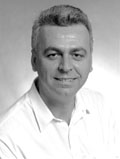
Ms. Beam, who joined the Special Collections Library in 1977, has been curator of the Humanities Collections since 1993. The Humanities Collections, which have materials dating from 700 to the present, are used by scholars around the world. In addition to building the collections and providing highly sophisticated reference assistance, Ms. Beam works closely with undergraduate and graduate students who rely on the collections’ resources. She chairs the University’s Librarians’ Forum and provided strong representation for the University Library as a member of the Faculty Senate Assembly and the Academic Affairs Advisory Committee, which advises the provost on academic issues. She also is a member of the American Library Association and the Rare Book and Manuscript Section of the Association of College and Research Libraries.
Professor Gagos, who came to the University in 1988, currently is associate professor of papyrology and Greek. He is responsible for the administration and research of the University’s priceless 10,000-piece papyri collection, the largest collection of papyri in the “New World.” A founder of the Advanced Papyrological Information System, a national consortium, Professor Gagos has played an important role in preserving the ancient texts, converting them into computer files and making them available on the World Wide Web. The collection includes receipts, bills of sale, tax records and letters, as well as biblical fragments, many 3,000 years old.
Professor Gagos, vice president of the American Society of Papyrologists, has published three books and more than 25 articles. A gifted and enthusiastic teacher, Professor Gagos won the College of Literature, Science, and the Arts Excellence in Education Award in 1992 and the College’s Matthews Underclass Teaching Award in 1995.
In recognition of their many contributions to the University’s vitality and intellectual life, particularly the CD-ROM The Evolution of the English Bible: From Papyri to King James, which brings the riches of the University’s collections to wider audiences, the University of Michigan is pleased to present to Kathryn L. Beam and Traianos Gagos the 1999 University of Michigan Press Book Award.
David T. Burke—Faculty Recognition Award
David T. Burke is internationally recognized for his pioneering contributions to the Human Genome Project and research on the genetics of aging. As a graduate student, he developed a technique for cloning mammalian DNA in yeast-artificial chromosomes (YACs). The technology, one of the most significant contributions to mammalian molecular genetics research, led to an explosion of genetic information as well as the ability to sequence the human and mouse genomes. He has played a major role in the Human Genome Project, including service as a member of several committees associated with the National Center for Human Genome Research.
Professor Burke’s 1987 paper in Science describing YAC cloning and his 1991 paper announcing the establishment of a mouse genomic YAC library are major milestones in mammalian genome analysis. He currently is examining the loss of proper regulation of gene expression that occurs with aging, thought to play an important role in the aging process and in the development of cancer.
Working with colleagues in the College of Engineering, Professor Burke has developed micromechanical integrated DNA analysis on a silicon chip, which promises to simplify analysis of the enormous volume of information contained in the mammalian genome. DNA analysis on a chip is expected to expedite diagnosis and treatment, and allow for rapid, cost-effective expansion of genetic trait experiments.
Professor Burke also excels as a teacher. In addition to teaching the Department of Human Genetics’ basic science course, he teaches in the College of Engineering and the Residential College, and also instructs a summer course on evolution and the Human Genome Project for genetic counselors and high school science teachers. Whether speaking to state legislators, alumni groups or high school students, he conveys to his audiences the excitement of contemporary research.
Since joining the Medical School faculty in 1991, Professor Burke’s insight and commitment to academic values have been invaluable to the many committees on which he has served. Currently he is a member of the operating committees of the Medical Scientist Training Program and the Genome Science Training Program, and is on the Institute of Gerontology’s Executive Advisory Committee.
In 1996, Professor Burke received one of the National Science Foundation’s first annual Presidential Early Career Awards for Scientists and Engineers. He has received numerous other awards, including a Basil O’Connor Starter Scholar Award from the March of Dimes and Searle Scholar Award from the Searle Foundation. He is associate editor of Genome Research, and a member of the National Human Genome Institute Study Section and the National Institute on Aging’s Advisory Committee on Aging and Genetic Epidemiology.
For his profound contributions to the Human Genome Project, advances in DNA sequencing technology and our understanding of aging; his enthusiastic teaching at all levels; and his generous service to the University and the nation’s scientific enterprise, the University of Michigan is proud to bestow upon David T. Burke its Faculty Recognition Award.
Kathleen Canning—Faculty Recognition Award
Kathleen Canning is a leading historian of labor and gender in the United States, with an international reputation far beyond her immediate field of late 19th – and early 20th -century German history. At the center of her impressive scholarship stands her award winning book, Languages of Labor and Gender: Female Factory Work in Germany, 1850–1914. This empirically rich and highly original study explores the shifting structures of textile production and the changing meanings that contemporaries ascribed to the female factory labor force in Germany.
Professor Canning’s work has profoundly altered the way that scholars approach German labor and working-class history by analyzing gender as a factor in the processes of class formation. Her current research on “Body, Class and Citizenship” also is an agenda-setting effort that spans disciplinary boundaries.
A wonderful undergraduate teacher and mentor of graduate students, Professor Canning is known for the energy and creativity that she invests in her courses. Her teaching is marked by an exceptional ability to integrate complex concepts and historical problems with an appropriate range of source material in ways that make her analyses accessible at every student level.
Professor Canning has made important contributions to the curriculum, from revamping the introductory survey course in modern European history shortly after she joined the Department of History in 1987, to creating and teaching its graduate pedagogy course and contributing to interdisciplinary courses in history, German and women’s studies.
As chair of the History Department’s Curriculum Committee and of its Graduate Committee, she led the department in a reassessment of its graduate curriculum. Her presence is felt in many other areas, including the newly established joint Ph.D. Program in History and Women’s Studies. She is a faculty associate in the Center for Russian and East European Studies and the Program for the Comparative Study of Social Transformation, and a member of the Provost’s Working Group on Faculty and the executive committees of the International Institute and the Women’s Studies Program. Professor Canning also played a critical role in the revival of the Center for European Studies and served as its director from 1995 to 1998.
Her scholarly distinction has been recognized by her recent selection as co-editor of the journal Gender and History, and with her appointment as chair of the American Historical Association’s book prize committee on central European history. Among the many honors Professor Canning has received are the German Marshall Fund of the United States Fellowship, the Fulbright Fellowship for Study Abroad, the College of Literature, Science, and the Arts Matthews Underclass Teaching Award, and the University’s Arthur F. Thurnau Honorary Professorship.
For her distinguished research, outstanding teaching and contributions to pedagogy, and success in promoting interdisciplinary scholarship within the University and academe, the University of Michigan proudly presents to Kathleen M. Canning its Faculty Recognition Award.
Thomas E. Carey—Distinguished Research Scientist Award

Thomas E. Carey, founder and director of Michigan’s Laboratory of Head and Neck Cancer Biology, is a pioneer in the application of biological techniques to the study of squamous cell carcinoma of the head and neck.
Recognized internationally for proving that in vitro cultured cells consistently express the characteristics of the tumor from which they are established, he was the first scientist to establish cell lines for in vitro studies of this cancer. Today the 200 cell lines established at the University for the deadly carcinoma are a valued resource for scientists throughout the world.
Early in his career, Dr. Carey identified the first human melanoma antigen known to trigger an antibody-mediated immune response—a discovery that has paved the way for the development of cancer vaccines. His laboratory also was the first to identify the correlation of the expression of an adhesion molecule in head and neck cancer and the patient’s prognosis, which is helping physicians select the most appropriate treatments for individual patients based on the aggressiveness of their tumors.
Most recently, Dr. Carey has identified a narrow area of consistent loss of heterozygosity in chromosome 18q, which is expected to pinpoint the location of a new and significant suppressor gene that correlates with metastatic behaviors of head and neck cancers. Through his discoveries, widely shared through publications and international presentations, Dr. Carey is shaping new treatments for head and neck oncology patients.
In another research area, Dr. Carey’s discoveries of monoclonal antibodies specific to inner ear antigens, believed responsible for autoimmune sensorineural hearing losses, are expected to lead to strategies for preventing and treating this type of acute sudden deafness.
Since joining the Medical School’s Department of Otorhinolaryngology in 1978, Dr. Carey has demonstrated an extraordinary ability to convey the excitement and significance of basic science to undergraduates and minority high school students. He is a gifted communicator, able to explain complex findings to clinicians as well as to other researchers. He has trained more than 50 undergraduate students, 35 postdoctoral scholars, 36 medical students and residents, and 17 graduate students, as well as high school students and teachers. Many of Dr. Carey’s trainees are teaching in medical schools or have become independent researchers.
Dr. Carey, who serves as a reviewer or on the editorial boards of more than 20 journals, also is a National Institutes of Health reviewer and a member of several of its training programs.
In recognition of his outstanding research; his generosity as a colleague, teacher, and mentor; and his distinguished service to the University and to the fields of otorhinolaryngology and oncology, the University of Michigan proudly presents to Thomas E. Carey its Distinguished Research Scientist Award.
Brian P. Coppola—Amoco Undergraduate Teaching Award
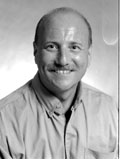
A dedicated chemist and charismatic teacher-scholar, Brian P. Coppola is recognized internationally for his inspiring and innovative work in science education. In the Department of Chemistry and as a faculty associate with the Center for Research on Learning and Teaching, Professor Coppola has introduced major curricular reforms, including open-ended investigative laboratory experiments, sophisticated molecular modeling software used in the Science Learning Center, and Semi-Structured Peer-Study Groups led by Honors Program students specially trained in pedagogy and content. Other instructional units look to Professor Coppola for guidance about providing this kind of enrichment for their students.
Since joining the faculty in 1986, Professor Coppola often has taught multiple sections of one or more large courses. He is an engaging lecturer — insightful, intuitive and knowledgeable. The superior teaching evaluations he receives from students consistently are among the highest in his department.
Professor Coppola has won 15 teaching awards, including the Dean’s Excellence in Teaching Award annually since its inception in 1991, the prestigious 1994 Golden Apple Award from Students Honoring Outstanding University Teaching, and the Department of Energy’s National Undergraduate Computational Science Education Award in 1996. He was recognized by the Carnegie Foundation as a Pew Scholar in 1998.
Professor Coppola is an extraordinary mentor, constantly challenging undergraduate and graduate students to stretch their capacities while making it exciting for them as they do so. He attracts many of the University’s brightest undergraduates to his research projects, both in chemistry and in chemical education, and nurtures these young collaborators so they achieve publishable results. Professor Coppola’s own scholarly achievements are exquisitely documented in more than 30 journal articles and chapters in several books.
He is a wise and trusted colleague and valuable resource for associates who embrace and adapt many of his pedagogical innovations. Professor Coppola works with the School of Education and other educators to develop new and effective methods to teach science to K-12 students. He also has designed seminars especially for graduate students and science education researchers, and has made invaluable contributions to the work of committees affiliated with the National Science Foundation, the Carnegie Foundation and the Dreyfus Foundation,
In recognition of his passion for teaching and mentoring, his outstanding scholarship and the profound ways he is reshaping science education at the University and nationally, the University of Michigan is proud to present to Brian P. Coppola the 1999 Amoco Undergraduate Teaching Award.
Charles R. Doering—Faculty Recognition Award

An internationally recognized mathematician and physicist, Charles R. Doering is making invaluable contributions to applied mathematics at the University of Michigan, from leading an interdisciplinary initiative to broaden educational opportunities for students to expanding the level of research activity in the Department of Mathematics.
The winner of a National Science Foundation Presidential Young Investigator Award in 1989 and a Fulbright Scholarship in 1995, Professor Doering works broadly in mathematics, theoretical physics, chemistry and biology, combining rigorous applied analysis with keen insight into physical problems. He has contributed enormously to the understanding of stochastic systems, including the field of non-equilibrium statistical physics, and to equations that describe incompressible fluids and turbulence. To date, his high-quality publications number more than 75.
Professor Doering is editor of Physics Letters A, serves on the editorial boards of Dynamics and Stability of Systems and the Journal of Statistical Physics, and is a referee for more than 20 journals and foundations, including the National Science Foundation.
Since joining the Department of Mathematics in 1996, Professor Doering has worked with College of Engineering faculty to redesign a differential equations course taken primarily by sophomore engineering and science students, enhancing the course with laboratory projects and classroom demonstrations. Professor Doering and colleagues have designed an innovative Ph.D. program in applied and interdisciplinary mathematics to accommodate the growing need among science students for this kind of training. He also has increased the Mathematics Department’s outreach through the Michigan Interdisciplinary Mathematics Conference, which brings together outstanding scholars to consider such topics as modeling and analysis in medicine and biology, and problems in control theory.
Professor Doering is a talented and popular classroom teacher who attracts many students from outside the Mathematics Department to his graduate-level applied mathematics course. Well prepared and passionate about his subject, Professor Doering uses real world applications to illustrate problems and concepts. He also is a successful mentor in the summer Research Experience for Undergraduates program and was honored for his teaching with a College of Literature, Sciences, and the Arts Excellence in Education Award in 1998.
In acknowledgement of his distinguished research, his success in providing new opportunities for students to take part in applied mathematics research, and his contributions to interdisciplinary scholarship at the University and internationally, the University of Michigan is pleased to present to Charles R. Doering its Faculty Recognition Award.
Sheila C. Feld—Distinguished Faculty Governance Award
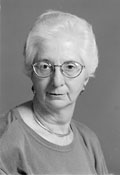
Throughout her academic career, Sheila C. Feld has demonstrated a dedication and deep concern for the welfare of the University, its students, and its faculty that transcend school or college boundaries. As a social psychologist, she believes that being involved in how one’s work life is organized is important for individuals and their organizations; her career shows her commitment to this belief.
Professor Feld has provided distinguished service to the University and to the School of Social Work, as an assistant dean, interim associate dean, and as head of the Doctoral Program in Social Work and Social Science. High standards, coupled with fairness, mark her many administrative contributions. Professor Feld served on the School’s Executive Committee in 1985–88, 1991–92, and 1995–96; its Search Committee in 1982–86 and 1988–89; and its Doctoral Curriculum Revision Task Force in 1983–87. She participated in faculty discussions on a variety of issues, including grievance procedures, as the School of Social Work’s representative to the Senate Assembly in 1993–96.
As a member of the Provost’s Committee on Faculty Handbook Revision in 1997-98, Professor Feld used her excellent written and oral communication skills, including wit and humor, to guide the group toward consensus. Another notable contribution to the academic community occurred in 1994-99, when she served on the Academic Affairs Advisory Committee (AAAC), an advisory group to the Provost and Executive Vice President for Academic Affairs. The committee developed principles of faculty involvement in University governance, which were adopted by the Senate Assembly and the provost. As chair of AAAC this past year, she guided the group’s deliberations regarding the roles of tenure- and non-tenure-track faculty.
A world-class academician, Professor Feld is a thorough and conscientious faculty leader who upholds and exemplifies the highest academic standards. She has maintained a strong and diverse program of scholarly research since joining the School of Social Work faculty in 1969, and is an expert on a range of social issues, including aging, role transitions across the lifespan, social motivation, and applications of social psychological theory and research to the delivery of social services. Professor Feld also is a superb lecturer and teacher, attentive to students, extremely thorough in her evaluations and committed to working with students as long as needed for them to achieve their goals.
Professor Feld, who earned her doctorate in social psychology from the University of Michigan in 1960, is a member of the American Psychological Association, the Council on Social Work Education, and the Gerontological Society of America. She also has served on National Institute of Mental Health committees and as a member of the steering committee of the Group for the Advancement of Doctoral Education in Social Work.
In recognition of her dedicated service on behalf of faculty governance as well as her distinguished scholarship and teaching, the University of Michigan proudly confers upon Sheila C. Feld its Distinguished Faculty Governance Award.
John P. Hayes—Distinguished Faculty Achievement Award
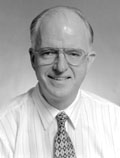
John P. Hayes, founding director of the University of Michigan’s Advanced Computer Architecture Laboratory, is an outstanding scholar whose research has significantly advanced the understanding of digital computer systems. He is recognized in both academia and industry as an expert in the fields of logic design and testing, very large scale integrated circuit design, and computer architecture.
Professor Hayes is a visionary researcher who brings a spirit of adventure to his work, often identifying areas of computer science that will become important in the future. He successfully integrates academic research with practical problems that are of strategic interest to the industrial community, which has resulted in a number of breakthroughs from self-testing computer chip circuits to architectures for distributed embedded systems that perform specific functions such as controlling automobile engines.
Professor Hayes enriches each area he addresses with publications that provide a solid theoretical and experimental foundation for additional research and, in some cases, successful commercial products. A notable example is his pioneering work on memory testing, which has led to commercial tools currently marketed by LogicVision Inc.
Clarity of style and attention to detail contribute to Professor Hayes’ reputation as a superb technical writer. He has published more than 150 papers in leading journals and conference proceedings. His publications are classics in the field, and several have won best paper awards. He has written five books, including several textbooks that have guided a generation of students through computer logic and integrated-circuit layout. One, now in its third edition, Computer Architecture and Organization, has been translated into several languages. He is editor of the Journal of Electronic Testing and a member of the International Advisory Board of Computer Science and Informatics.
Professor Hayes, who joined the College of Engineering in 1982, was among the first to recognize the importance of the microprocessor and to teach courses about using it effectively. An outstanding educator with a gentle sense of humor, he teaches and motivates using a mix of traditional homework and open-ended research assignments that challenge students intellectually. Many former students have gone on to faculty positions at prestigious universities, while others have moved into key research positions with leading computer and computer design companies.
Respected by colleagues in his department and in the broader scientific community, Professor Hayes received the Department of Electrical Engineering and Computer Science’s Research Excellence Award in 1991-92 and its Service Excellence Award in 1994-95. He is a Fellow of the Institute of Electrical and Electronics Engineers and a member of Sigma Xi and the Association for Computing Machinery.
For 30 years of leadership and impressive contributions to the fields of electrical engineering and computer science as a researcher, author, teacher and mentor, the University of Michigan proudly presents to John P. Hayes its Distinguished Faculty Achievement Award.
Fred J. Karsch—Distinguished Faculty Achievement Award
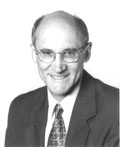
Steadfastly pursuing a highly original research path that began three decades ago, Fred J. Karsch has become an international expert on brain mechanisms that regulate fertility in females and the integration of reproductive physiology, neuroendocrinology and biological rhythms. His work with sheep has led to advances in methodology and new knowledge about hormones.
As a result of Professor Karsch’s research, the sheep model is the premier system for studying how the seasons and hormones affect the female reproductive cycle of mammals. His definitive discoveries about the synchronization of the internal clock in sheep by seasonal information encoded in the profile of a daily melatonin rhythm have enhanced scientific understanding of seasonal breeding in sheep and other animals.
Throughout his career, Professor Karsch has crafted complicated experiments that lead to firm conclusions. His discoveries, presented in more than 145 articles in peer-reviewed publications, are cited widely. Professor Karsch has received prestigious awards, including the Research Award of the Society for the Study of Reproduction in 1987 and the Amoroso Award from the Society for the Study of Fertility in Great Britain in 1995.
He has served as an editor for Endocrinology and for the British publication Journal of Endocrinology, and on the editorial boards of other journals. He was elected as a director of the Society for the Study of Reproduction and appointed to review panels for the National Institutes of Health, National Science Foundation, and U.S. Department of Agriculture. His own research consistently garners enthusiastic support from such panels.
Professor Karsch, who joined the Medical School faculty in 1972, also is a superb teacher, enthusiastic and knowledgeable. He teaches the reproductive physiology block in two major physiology courses, one for medical students and the other for graduate students, and consistently receives among the highest ratings for his teaching. He also teaches a reproductive physiology course for graduate and undergraduate students.
Students speak with awe and great affection of Professor Karsch’s commitment to their training. As a mentor, he challenges, guides and inspires graduate students and postdoctoral fellows. Nothing takes precedence over his time with trainees. More than 20 of these students have worked under his guidance in his laboratory, and a number of them have gone on to develop their own highly regarded research programs. He participates actively on the training grant faculty for the Reproductive Sciences Training Program, the Systems and Integrative Biology Training Grant, and the Medical Scientist Training Program.
In the Department of Physiology, he has served on the Graduate Committee and chaired the Departmental Review Committee. Professor Karsch also has made important contributions to the Reproductive Sciences Program, serving on the Executive Committee and co-directing the Sheep Research Facility, which was built largely by hand by Professor Karsch, co-director Douglas L. Foster and their trainees.
In recognition of Professor Karsch’s myriad and rich contributions to the field of reproductive endocrinology, his dedication to the training of young scientists, and his exceptional service to the Medical School and the University, the University of Michigan proudly presents to Fred J. Karsch its Distinguished Faculty Achievement Award.
George W. Kling—Faculty Recognition Award
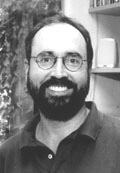
George W. Kling, one of the world’s most creative and influential aquatic ecologists, is an international authority on the biogeochemical analysis of inland waters and ecosystem studies of lakes and other aquatic environments. Based on interdisciplinary research that spans the globe, from the arctic tundra and lakes of Alaska to tropical Africa, Professor Kling has established the importance of the exchange of materials, including carbon, between aquatic and terrestrial ecosystems, and has provided colleagues with a critical tool to improve models of global climate change.
Famous for solving the mystery surrounding the death of hundreds of humans and livestock caused by outgassing of rich concentrations of carbon dioxide from Lake Nyos in Cameroon, Professor Kling continues to study the long-term geochemistry of Lake Nyos. More recently, he has demonstrated great imagination and a high degree of technical skill in applying stable isotopes to a variety of aquatic questions, including the drift paradox of Baetis mayflies and the structure of planktonic food webs.
Professor Kling is the principal investigator or co-principal investigator for nine National Science Foundation (NSF) grants — a testament to his originality, productivity and the high regard of his peers. The quality of his scholarship is reflected in an extraordinary publication record, including a total of seven articles in Science and Nature. His work also has been featured in National Geographic and Discover magazines and on National Public Radio.
A member of the Department of Biology and researcher at the Center for Great Lakes and Aquatic Sciences since 1991, Professor Kling is a rigorous teacher who often uses the Socratic method to encourage critical thinking, and who regularly incorporates new findings and innovative approaches into his courses. He helped develop and teaches salient and well-subscribed undergraduate courses, including an award-winning global change course.
Professor Kling is a NSF Presidential Faculty Fellow and Fellow of the American Association for the Advancement of Science. He received a National Academy of Sciences Young Investigator Award in 1993, the University’s Excellence in Research Award in 1997, and frequently contributes to NSF and international symposia.
Professor Kling’s service as a collegial member of his department and of the University is exemplary. In the past three years, he has served on two influential University committees concerned with the life sciences, the Provost’s Advisory Group on the Environment and the Life Sciences Commission, as well as committees convened by the Office of the Vice President for Research.
For his path-breaking contributions to our understanding of ecological systems and global climate change; his commitment to students; and his outstanding service to the Department of Biology, the life sciences, and the University, the University of Michigan proudly confers upon George W. Kling the Faculty Recognition Award.
John T. Lehman—Distinguished Faculty Governance Award
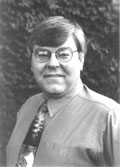
John T. Lehman has served as secretary of the University Senate and its elected representative bodies, Senate Assembly and the Senate Advisory Committee on University Affairs (SACUA), since 1994. As faculty governance’s official archivist, he has carefully chronicled faculty deliberations on issues critical to the University and higher education. His meticulous record-keeping and perceptive observations have provided a solid framework for faculty discussions and decision-making. Professor Lehman’s commitment to the well-being of the University and respect for accuracy are reflected in his editorial oversight of the Faculty Perspectives Page, which appears in The University Record.
Since joining the faculty in 1978, Professor Lehman has served as a council member and vice president of the Michigan chapter of Sigma Xi, the Scientific Research Society, and as vice president of the University’s chapter of the American Association for University Professors (AAUP) and as its representative to the national AAUP. He also is a past-president of the American Society of Limnology and Oceanography.
A renowned limnologist and research scientist, Professor Lehman has served on National Science Foundation review panels as well as on numerous committees within the Department of Biology and the Great Lakes Research Division, including the executive committees of the Biology Department and the Biological Station. Professor Lehman, a 1982 winner of the University’s Henry Russel Award, has supervised more than 20 undergraduate research projects.
His own elegant research on nutrient cycling rates, microscale nutrient processes, population dynamics and the influences of non-indigenous species on lake ecosystems is skillfully documented in more than 70 journal articles. Through his work as a chief scientist on research vessels of the University National Oceanic Laboratory System and on research cruises on lakes Victoria, Edward and Albert in East Africa, Professor Lehman has increased our understanding of the organisms and environmental conditions that occur in lakes and oceans as well as the processes by which aquatic organisms interact with their environments. Currently he is researching plankton communities, nutrient dynamics and climatic effects in the Laurentian Great Lakes of North America and the great lakes of East Africa. He has served on the Huron Valley Watershed Council and is a member of the steering committee for the International Decade for the East African Lakes, which oversees collaborative research projects in that region.
For his scholarly contributions to limnology, his service to the local and international scientific communities, and his commitment to strengthening the faculty and the academy, the University of Michigan is pleased to present to John T. Lehman its Distinguished Faculty Governance Award.
Robert E. Megginson—Regents’ Award for Distinguished Public Service
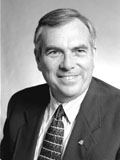
A distinguished mathematician and gifted teacher, Robert Megginson has introduced thousands of young people to the beauty and elegance of mathematics through creative outreach programs, his own teaching and mentoring, and the University of Michigan Math Laboratory.
Professor Megginson, a 1997 winner of the United States Presidential Award for Excellence in Science, Math, and Engineering Mentoring, spearheaded a Mathematical Association of America Board of Governors resolution calling on all U.S. college mathematics departments to offer pre-college programs to encourage students to study math. As chair of the Mathematical Sciences Research Institute’s Human Resources Advisory Board, Professor Megginson has led that group’s outreach efforts to women and underrepresented minorities.
Through his summer work with young people on the Turtle Mountain Chippewa Indian Reservation in North Dakota, Professor Megginson is inspiring many Native American students to attend college and graduate school. He draws upon the laws of probability in the traditional games of his people, the Lakota Sioux, and the patterns and symmetry of beadwork to teach about the connections between math and Native American culture.
A member of the University faculty since 1992, Professor Megginson directs the Department of Mathematics’ introductory courses in pre-calculus and calculus, which are nationally recognized for their emphasis on cooperative learning and other innovative programs. The Math Laboratory, a friendly, discovery-centered gathering place for students, logs an average of 20,000 undergraduate student contacts per year.
Professor Megginson has demonstrated his commitment to undergraduate education through his contributions to the University’s Living-Learning Program Task Force; the President’s Advisory Council on Multicultural Affairs; and the College of Literature, Science, and the Arts Curriculum Committee. He also has developed and taught a well received course about Native American experiences in the United States, and advises the U-M chapter of the American Indian Science and Engineering Society.
Professor Megginson is active in the Mathematical Association of America and the American Mathematical Society, and has published widely, including a new graduate textbook titled An Introduction to Banach Space Theory. He also sang for a number of years with the Illinois Opera Theatre and continues to pursue a lifelong interest in astronomy.
In recognition of his masterful interweaving of scholarship and teaching with professional service and academic outreach, his numerous contributions to the University and to mathematics education, and his generous mentoring, the University of Michigan proudly presents to Robert E. Megginson the Regents’ Award for Distinguished Public Service.
K.M. Jairam Menon—Distinguished Faculty Achievement Award
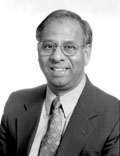
K.M. Jairam Menon is an outstanding academician, internationally known in the field of reproductive endocrinology, and a scientific leader in the use of molecular biology to study reproductive systems. His research on gonadotropin receptors and ovarian function has contributed significantly to the broader understanding of receptor structure and dynamics, as well as to the biochemistry of the ovary.
By cloning a novel luteinizing hormone (LH) receptor in the ovary and extensively studying its structure, function, and gene expression, Professor Menon has opened exciting new avenues of research in reproductive physiology. Twenty years ago his research led to the development of a rapid pregnancy test that was used until recently. The test allowed doctors for the first time to detect tubal pregnancies early, setting the standard for techniques that have changed the practice of obstetrics and gynecology.
Professor Menon’s experiments are elegantly planned and executed, and meticulously explained in clear and concise papers. The high quality of Professor Menon’s scholarship is evidenced by a strong and consistent publication record, including more than 120 articles in such journals as the Journal of Biological Chemistry, Biochemistry, and Endocrinology. A kind, supportive, and generous scientist, he is highly regarded by colleagues and frequently is invited to address national and international scientific meetings. He has received continuous National Institutes of Health (NIH) funding for more than 25 years.
Since joining the Medical School faculty in 1970, Professor Menon has contributed to all aspects of the University’s academic life. He is an exceptional mentor, both in the laboratory and in the classroom, and has trained a large number of postdoctoral fellows, graduate students, undergraduates and medical students, many of whom are successful independent scientists. Professor Menon teaches complicated subjects in a clear and compelling manner. Students consistently give him high marks for teaching and he has been recognized twice as one of the Medical School’s outstanding teachers. He always has at least two undergraduate students working in his laboratory, and several of them have gone on to medical or graduate school.
Professor Menon, who has directed the Division of Research for the Department of Obstetrics and Gynecology since 1994, has served with distinction in a variety of administrative positions in the departments of Biological Chemistry and of Obstetrics and Gynecology. He is a member of the Department of Veterans Affairs’ Merit Review Committee and of the editorial board of the Journal of Biological Chemistry. A reviewer for Endocrinology, Biology of Reproduction and Endocrine and for NIH, he has been active in the Endocrine Society, the American Society for Biochemistry and Molecular Biology, and the Society for the Study of Reproduction for more than two decades.
In recognition of his outstanding research, particularly in the areas of biochemistry and reproductive science; his invaluable administrative contributions to the Medical School; and his inspiring teaching and mentoring, the University of Michigan proudly presents to K. M. Jairam Menon its Distinguished Faculty Achievement Award.
William H. Pearson—Faculty Recognition Award
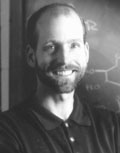
A distinguished researcher in the field of organic chemistry, William H. Pearson has pioneered the development of new methods to synthesize biologically significant molecules, both known and unknown. Professor Pearson relies on instinct, tenacity and insight to solve challenging research questions. His projects are thoroughly investigated and fruitful, each spawning additional chemical challenges.
Professor Pearson is recognized internationally for his research on ways to synthesize saturated nitrogen-containing heterocycles—important ring-shaped molecules found in natural substances and pharmaceuticals. He has published more than 75 articles in leading chemical journals and has organized several outstanding conferences and symposia on the subject. He is the series editor of Advances in Heterocyclic Natural Products Synthesis, serves on the advisory board of the International Society of Heterocyclic Chemistry, and co-teaches an internationally renowned short course on heterocyclic chemistry for industrial chemists.
Since joining the faculty in 1984, Professor Pearson has made enormous contributions to the Department of Chemistry, including its revolutionary new chemistry curriculum for undergraduates. In his interactions with doctoral students and undergraduate researchers, he promotes the subject of chemistry as a way of thinking and solving problems. Professor Pearson’s thoughtful and thought-provoking lectures illustrate the nature of scientific pursuit and include implicit lessons on the nature of inquiry. Both graduate and undergraduate students say that in addition to welcoming questions and creating an atmosphere of approachability, he actively engages them in learning through complex problem solving and sets impeccably high, but attainable, goals for his classes. He developed the department’s first intermediate-level organic chemistry course. His special topics course in heterocyclic chemistry is considered among the best in the country.
Professor Pearson also has contributed in significant ways to the administration of his department and to the University. In addition to coordinating the organic chemistry area for seven years, he has served on the Chemistry Department Executive Committee, on many faculty recruitment committees, and on the Rackham Divisional Board. He enhances the University’s reputation through his many scholarly contributions to the American Cancer Society, the National Science Foundation, the National Institutes of Health and the American Chemical Society. Professor Pearson has been honored as a Fellow of the Center for Research on Learning and Teaching. He also received the Camille and Henry Dreyfus Foundation Award for Newly Appointed Faculty in Chemistry in 1984–89.
In recognition of his contributions as both a teacher and researcher to organic chemistry, particularly heterocyclic chemistry, and his service to the Chemistry Department, the University, and society, the University of Michigan proudly presents to William H. Pearson its Faculty Recognition Award.
William R. Roush—Distinguished Faculty Achievement Award
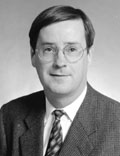
William R. Roush, one of the world’s leading synthetic organic chemists, is internationally recognized for his contributions to biology and medicine. His scientific acumen has resulted in the creation, by synthetic means, of some of the extraordinarily complex substances found in nature that hold great promise as medicinal agents. He also has invented and developed synthesis methods, strategies, and reagents, many of which are used by laboratories around the world.
Professor Roush has made important contributions to carbohydrate synthesis, which is of growing importance in chemistry, biology, and medicine. His work on the design of drugs targeted at the parasite that causes Chagas’ disease also has attracted international attention. On another front, Professor Roush’s laboratory recently completed a total synthesis of olivomycin A, a prominent member of the aureolic acid antibiotics and the first of this group to be prepared by chemical synthesis. This remarkable achievement was highlighted in Chemical and Engineering News. In all, studies by Professor Roush and his colleagues have resulted in more than 150 peer-reviewed publications.
Since joining the Department of Chemistry in 1997 as the Warner Lambert/Parke-Davis Professor of Chemistry, Professor Roush has strengthened the department and the University through his revision of the graduate-level synthetic chemistry course and his successful recruitment of outstanding faculty and graduate students.
An excellent teacher of undergraduate and graduate students, Professor Roush has rendered great service to the community of synthetic chemists through the excellent short courses he has taught at more than 20 pharmaceutical companies, where his scholarly blend of synthetic organic chemistry and methodology is highly valued.
As co-chair of the Life Sciences Commission, Professor Roush skillfully led deliberations that promise to shape the life sciences at Michigan for generations to come. He co-authored the Commission’s excellent report, which led to a Regental decision to launch the Life Sciences Initiative and to establish the Life Sciences Institute.
Professor Roush has participated in the most demanding and highly respected service roles in organic chemistry, including serving as chair of the Organic Division of the American Chemical Society and of the National Institutes of Health Medicinal Chemistry Study Section. He recently was appointed to the editorial board of the Journal of the American Chemical Society, the pre-eminent journal in chemistry. Four of his former students are presidents or vice presidents of nationally known chemical companies.
Professor Roush’s stature is reflected by the honors he has received, including the Arthur C. Cope Scholar Award from the American Chemical Society and the National Institute of General Medical Sciences’ Merit Award, as well as the numerous named lectures he has presented at universities and scientific organizations worldwide.
In recognition of his innovative scholarship and scientific discoveries, particularly in the field of synthetic chemistry; his teaching and mentoring; and his exceptional service to his profession, the University, and the life sciences, the University of Michigan proudly presents to William R. Roush its Distinguished Faculty Achievement Award.
Michael D. Uhler—Research Scientist Recognition Award
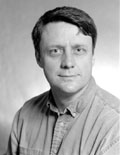
Michael D. Uhler, a pioneer in molecular cloning, is a distinguished molecular neuroscientist who has been in the forefront of protein kinase research for 15 years, illuminating our understanding of how proteins in the brain allow nerve cells to change and store information. Combining tools of molecular biology and enzymology in creative ways, he cloned the first cDNA of protein kinase A, a key protein in the activation of multiple cellular events. He also has cloned and characterized the regulatory subunits and inhibitor molecules of protein kinase A.
Dr. Uhler’s pioneering work with the polysome RNA selection method in the cloning of specific cDNA has made it possible for other laboratories to clone specific genes. His ingenious techniques have been used to research such important areas as calcium channel function and secretion and, more recently, to clone and express a protein associated with nerve regeneration in fish.
Dr. Uhler’s broad intellectual interests, knowledge and great enthusiasm for science make him a highly sought after collaborator and inspiring mentor for graduate and undergraduate students. Since joining the faculty in 1988, he has enriched the thinking and research of colleagues by sharing a broad range of research techniques he employs, including classical biochemical strategies as well as the newest molecular biological tools. As a result, a number of the University’s older research programs are now state-of-the-art.
The quality of Dr. Uhler’s research is evidenced by more than 50 manuscripts in distinguished scientific journals and by his appointment as an editor of the Journal of Biological Chemistry. His service on National Institutes of Health study sections, invited presentations and outstanding record of grant support indicate the esteem in which he is held by peers. He is a member of several professional societies, including the American Society for Microbiology and the Society for Neuroscience, and has received accolades for his skillful editing of Basic Neurochemistry, a widely used textbook now in its sixth edition.
Dr. Uhler, who received the University’s Faculty Recognition Award in 1993, is an outstanding teacher, presenting well-prepared lectures and encouraging students to achieve the highest intellectual standards. He also has made valuable contributions to important committees within the Mental Health Research Institute, Department of Biological Chemistry, Medical School, Horace H. Rackham School of Graduate Studies and the Office of the Vice President for Research. During the three years he directed the Neuroscience Graduate Program, Dr. Uhler molded it into a nationally recognized program, attracting many new faculty members and outstanding students.
In recognition of his important contributions to the advancement of science, particularly our understanding of cell signaling systems; his enthusiastic teaching and mentoring of students and colleagues; and his distinguished service to the University community, the University of Michigan proudly presents to Michael D. Uhler the Research Scientist Recognition Award.
John Whittier-Ferguson—Amoco Undergraduate Teaching Award
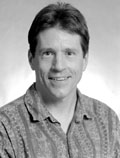
A distinguished scholar of modernism and a gifted teacher, John Whittier-Ferguson imparts to his students a passion for discovering the meaning and richness embedded in the world of literature. He also is a dynamic contributor to the quality of undergraduate education in the Department of English Language and Literature and the University as a whole.
Professor Whittier-Ferguson, who joined the faculty in 1990, is highly respected for his forthright opinions. He has become a spokesperson for high standards, community responsibility, and diversity in the classroom and curriculum. As chair of the department’s Initiative on Diversity in Scholarship and Pedagogy, he has provided intelligent, sensitive leadership to faculty discussions about how to achieve broad representation in faculty appointments and administrative assignments and to create a curriculum that recognizes linguistic and cultural variety within English literature.
A master of curriculum reform and teacher training, Professor Whittier-Ferguson is deeply committed to the practice of writing in all courses, and has offered many creative ideas to faculty about assignments for undergraduates. He has led the English Department’s curriculum reform efforts as a member of its Executive Committee for seven years, and as director of Undergraduate Studies and of the Honors Program for English Concentrators. He has sparked renewed enthusiasm for the Honors Program by clarifying and articulating the program’s underpinnings and by creating a structured approach to the research, analysis, and writing of the required Honors theses. These foundational changes have resulted in a robust program and outstanding scholarly papers—a source of pride for Honors students and the department.
Professor Whittier-Ferguson brings to his teaching tremendous energy and great expectations for his students. Drawing on meticulously prepared lesson plans, he teaches superbly at all levels, from freshman writing courses to graduate courses about teaching. An architect and frequent teacher of the department’s acclaimed graduate student pedagogy course, Professor Whittier-Ferguson conveys his enthusiasm for teaching along with practical advice on how to plan lessons, lead discussions, grade papers and use office hours effectively.
His consistent commitment to teaching is affirmed by excellent student evaluations and numerous teaching awards, including three College of Literature, Science, and the Arts Excellence in Teaching Awards (1992, 1993 and 1996) and the Class of 1923 Memorial Teaching Award in 1994. Professor Whittier-Ferguson also won the English Department’s Louis I. Bredvold Prize for outstanding published scholarly work in 1992 and was named the Wilhartz Junior Professor of English in 1994.
For his monumental contributions to teaching and pedagogy in the Department of English Language and Literature, his personal warmth and integrity, and his inspiring example as a University citizen and scholar-teacher, the University of Michigan is pleased to bestow upon John Whittier-Ferguson the 1999 Amoco Undergraduate Teaching Award.
Henry T. Wright—Distinguished Faculty Achievement Award
An exceptional scholar with deep and wide-ranging interests, Henry T. Wright is a leading authority and theoretical innovator in the archaeology of complex societies such as chiefdoms, states and empires. Professor Wright’s geographically diverse field studies have generated models of cultural development that have reshaped the study of state formation among ancient peoples worldwide.
Professor Wright’s primary research focus has been the development of states from interacting pre-state societies, with particular emphasis on Mesopotamia, Iran, Madagascar and the Comores. His best known work uses the type and quantity of artifacts excavated to chronicle the rise of ancient civilizations. Professor Wright’s information model is one of the most frequently cited models in anthropology, and his papers about the origins of the state in a cross-cultural and comparative framework are widely cited.
Professor Wright, who joined the faculty in 1967, has been working in Madagascar with Malagasy, French and American social scientists since the early 1970s, constructing an archaeological record of the development of complex societies on the island. One of the last large land masses to be settled by humans, Madagascar has become in Professor Wright’s research a living laboratory for the study of human and natural history.
Closer to home, Professor Wright has worked with graduate students and amateur archaeologists to construct a classification of artifacts of Michigan’s earliest foragers and horticulturists. The new classification system, which divides the Paleoindian period of the Great Lakes into three phases, is being adapted by others to analyze Paleoindian materials throughout the Northeast.
Professor Wright is an exciting teacher in the classroom and an exceptional mentor. He regularly visits current and former students and other colleagues in the field and willingly helps with everything from logistics and dealing with bureaucratic problems to the daily tasks of field projects.
As a long-standing member of the National Geographic Society’s Committee on Research, Professor Wright has been a forceful and effective advocate for the funding of innovative archaeological research projects around the world. He has received innumerable National Science Foundation research awards and the distinguished MacArthur Foundation Fellowship.
Professor Wright, curator of archaeology in the Museum of Anthropology and a former director of the Museum, fosters institutional connections between cultural, historical and biological research within the Department of Anthropology so that scholarly exchanges flourish. He is active in many professional organizations, including the National Academy of Sciences, the Science Board and Steering Committee of the Santa Fe Institute, the American Anthropological Association, and the British Institute in Eastern Africa.
For his discoveries and leadership in the fields of anthropology and archaeology, his teaching and mentoring, and his inspiring contributions to the intellectual life of the University, the University of Michigan is proud to present to Henry T. Wright its Distinguished Faculty Achievement Award.

